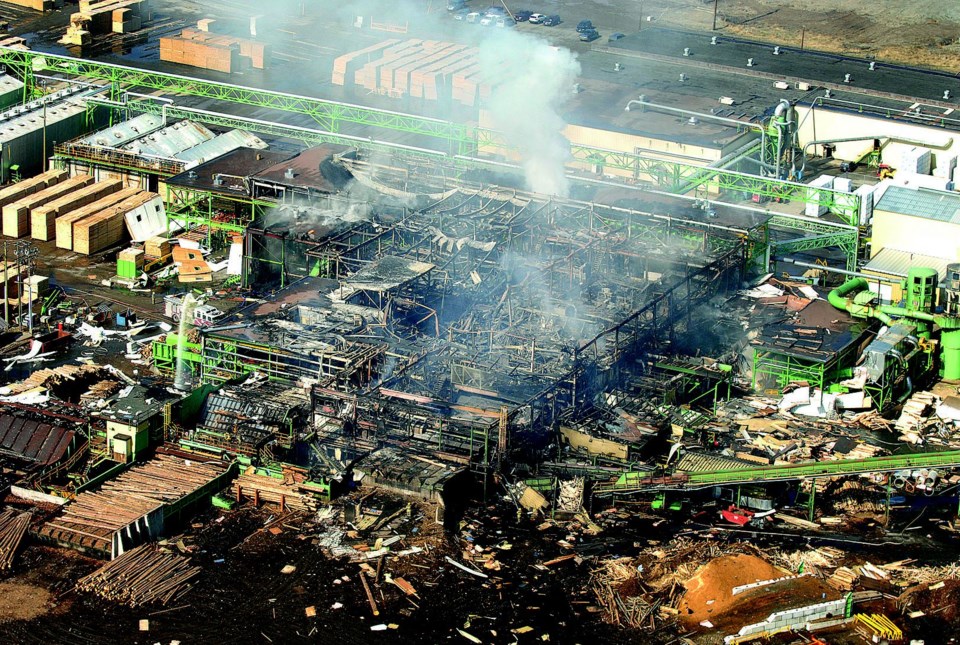The owners of Lakeland Mills Ltd. are appealing the financial penalties WorkSafeBC issued the sawmill for the 2012 fire and explosion that killed two employees and injured 22 others.
"Lakeland has taken this action for a number of reasons after carefully weighing its responsibility for the tragedy against its sincere belief that the responsibility is shared with all stakeholders with an interest in ensuring safe workplaces," Sinclar Group Forest Products president Greg Stewart said in a statement issued Friday afternoon.
In July, WorkSafeBC issued Lakeland a $626,663 claims cost levy for violating regulations that govern worker compensation, as well as employee health and safety and a $97,500 administrative penalty for $724,163 in total.
Glenn Roche, 46, and Alan Little, 43, died from injuries suffered in the April 23, 2012, incident. Three months earlier, on Jan. 20, 2012, an explosion and fire ripped through Babine Forest Products near Burns Lake, killing Carl Charlie, 42, and his co-worker Robert Luggi, 45, and injuring 20 other workers.
Stewart noted that Crown Counsel reviewed all the same evidence as WorkSafe BC and concluded a sawdust-related explosion was a "previously unrecognized hazard" to both the B.C. sawmilling industry and WorkSafe BC.
"The Crown even discovered that a WorkSafe BC officer responsible for inspecting the Lakeland mill in the months prior to the incident did not observe a dust violation and in fact stated that he believed Lakeland was a 'clean mill' compared to others," Stewart said. "The Crown also learned that, after the Babine accident, Lakeland started to make diligent inquiries to attempt to learn about sawdust-related hazards and took steps to acquire new equipment to improve sawdust collection at its mill."
Stewart also said that it was not until three days after the Lakeland explosion that WorkSafeBC began raising concerns about the hazard of combustible dust with the industry.
"The company also believes that an appeal will permit all parties to learn more to prevent unforeseen hazards from emerging without attention and from materializing without notice, so that such a thing never occurs again," Stewart said.
After receiving reports from WorkSafeBC, provincial Crown counsel decided to not pursue charges against the owners of either mill while the provincial government has resisted calls for a public inquiry.
A coroner's inquest into the two events will be held in March at the Prince George courthouse, but critics say that a coroner's inquest cannot assign fault, only make recommendations to prevent similar incidents in the future. In contrast, they say a public inquiry commissioner can make findings of misconduct against individuals.
Critics have also said Lakeland got off lightly on the $97,500 administrative penalty given that the maximum WorkSafeBC can impose in that regard is $625,000.
Babine Forest Products' owners were also assessed a $97,500 administrative penalty but a $914,000 claims cost levy, adding up to $1.01 million, the highest penalty ever issued by WorkSafeBC.
Portland, Ore.-based Hampton Lumber Mills holds an 89-per-cent stake in Babine and the other 11-per-cent is held by First Nations in Burns Lake.



